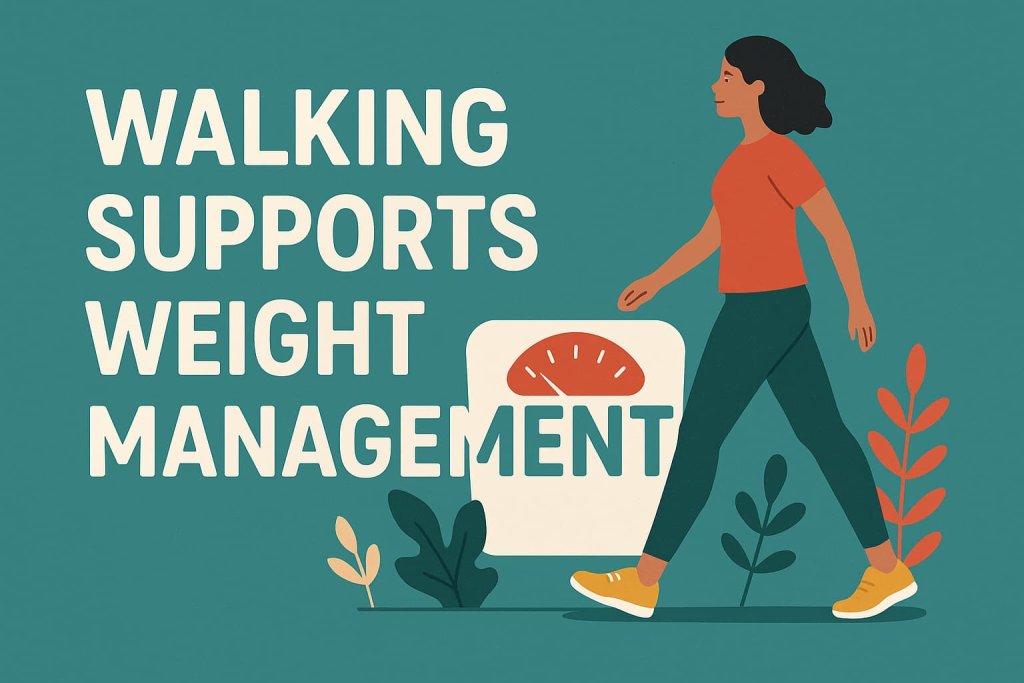Walking is scientifically proven to extend your lifespan, lower the risk of chronic diseases, improve mental health, and strengthen your body—all without special equipment or a gym membership. In fact, just 15 minutes of brisk walking a day can make a major difference. In an era of complex fitness trends, walking remains one of the simplest, safest, and most effective activities for health.
This comprehensive, research-backed guide covers the 12 most important science-based benefits of walking—with direct evidence and sources for every claim. Discover how adding steps to your routine can boost your heart, mind, mood, immunity, and more—plus find actionable tips and the latest health guidelines for 2025.
1. Walking Can Extend Your Lifespan

- Evidence:
- A 2025 review in The Times found that walking briskly for just 15 minutes daily reduces risk of early death by 20% (The Times, April 2025).
- A large 2021 study published in JAMA (cited by Real Simple) found that walking 7,000 steps a day is linked to a 45% lower risk of all-cause mortality (Real Simple, 2025).
- Every extra 1,000 daily steps further lowers death risk by up to 10% (up to about 7,500 steps) (Self.com, 2025).
Why does this matter? Consistent walking helps regulate blood pressure, blood sugar, and weight—all of which directly affect how long you live.
Key Takeaway: You don’t have to run marathons. Even a small commitment to walking, at any age, gives you measurable, lasting benefits.
2. Walking Improves Heart Health

- Evidence:
- The American Heart Association says just 30 minutes of brisk walking daily lowers risk of heart disease and stroke by up to 40%.
- Regular walking reduces both systolic and diastolic blood pressure, lowers “bad” LDL cholesterol, and raises “good” HDL cholesterol.
- A Mayo Clinic 2025 report shows walking improves blood vessel flexibility and reduces arterial stiffness, protecting against heart attack and stroke.
Key Takeaway: Walking is “medicine” for your heart and blood vessels. Consistency matters most, so make it a habit.
3. Walking Supports Weight Management

- Evidence:
- A 30-minute brisk walk burns 150–200 calories (for a 70kg adult) (CDC, 2025).
- Harvard researchers found walking can “turn off” weight-promoting genes by up to 50% (Harvard Health, 2023).
- People who walk after meals have lower blood sugar spikes and are less likely to gain weight over time (Mayo Clinic, 2025).
Key Takeaway: Walking is a foundation for lasting weight control, especially when combined with healthy eating.
4. Walking Lowers Blood Sugar and Diabetes Risk

- Evidence:
- Clinical trials show that a 10-minute walk after eating significantly reduces blood sugar and insulin spikes (Times of India, 2024).
- Regular walkers have up to 30% lower risk of type 2 diabetes compared to inactive people (Runner’s World, 2024).
Key Takeaway: Walking is a proven, drug-free way to manage blood sugar and prevent diabetes.
5. Walking Strengthens Joints, Muscles & Bones

- Evidence:
- The Arthritis Foundation shows walking lubricates joints, improves cartilage nutrition, and reduces arthritis pain.
- Mayo Clinic research finds walking maintains bone density and prevents osteoporosis, improving balance and lowering fall risk.
Key Takeaway: Regular walks keep you strong, mobile, and pain-free.
6. Walking Boosts Mood and Lowers Stress

- Evidence:
- Multiple randomized trials confirm walking outdoors increases serotonin, dopamine, and endorphins (Runner’s World, 2025).
- A 10–20 minute walk can significantly reduce anxiety and tension (Marie Claire UK, 2024).
- Studies in Psychosomatic Medicine show walking’s mental health impact can match that of more intense exercise.
Key Takeaway: Even short walks can turn your day around emotionally and mentally.
7. Walking Sharpens Brain Function & Reduces Dementia Risk

- Evidence:
- Aerobic walking increases blood flow and oxygen to the brain, boosting neuroplasticity (Wikipedia, 2025).
- Regular walkers had a 38% lower risk of dementia and better memory/attention scores (EatingWell, 2024).
Key Takeaway: Daily walking keeps your brain healthy and may help prevent Alzheimer’s and other dementias.
8. Walking Strengthens Immunity & Reduces Inflammation

- Evidence:
- Studies show regular walking increases immune cells like natural killer (NK) cells, which defend against infection (Wikipedia, 2025).
- Walking lowers inflammation markers (like CRP) associated with many chronic illnesses (Wikipedia, 2025).
Key Takeaway: Walking regularly helps you get sick less often and heal faster.
9. Walking Improves Sleep Quality

- Evidence:
- Real Simple, 2025 found that walkers have better, deeper sleep and wake less at night.
- Health.com, 2025 says that walking, especially in daylight, helps regulate your sleep-wake cycle (circadian rhythm).
Key Takeaway: A walking habit helps you fall asleep faster and wake up more refreshed.
10. Walking Increases Mobility and Independence in Seniors

- Evidence:
- A July 2025 study in The Washington Post found seniors who walked faster (just 14 more steps/minute) improved their mobility and independence (Washington Post, July 2025).
- Interval walking—alternating 3 minutes fast, 3 minutes slow—further improves heart and muscle health (Washington Post, July 2025).
Key Takeaway: Walking daily protects independence and quality of life for older adults.
11. Walking Curbs Cravings & Improves Eating Habits

- Evidence:
- A Harvard study found a 15-minute walk cut cravings for sugar and chocolate in half.
- Walking distracts from stress and negative moods that can trigger overeating.
Key Takeaway: Walking gives you control over cravings and supports better eating habits.
12. Walking Is Accessible, Sustainable & Easy to Start
- Evidence:
- CDC and AHA guidelines recommend 5,000–7,000 steps a day (or about 150 minutes/week) for significant health benefits.
- New research shows even 4,000 steps/day helps older adults live longer (Self.com, 2025).
Key Takeaway: Walking is the most practical, “doable” form of exercise for all ages and lifestyles.
Expert Tips: How to Get the Most from Walking
- Track your steps (pedometer, phone, or smartwatch for motivation) (Self.com, 2025).
- Try post-meal walks for blood sugar control (Times of India, 2024).
- Interval walking: Alternate brisk and easy pace (Washington Post, July 2025).
- Social support: Walk with friends, family, or a group for accountability (Marie Claire, 2024).
- Explore new routes for extra motivation and mental stimulation (Runner’s World, 2025).
Frequently Asked Questions
- How much walking is “enough”? Most adults see major benefits from 5,000–7,000 steps daily or at least 150 minutes per week (Self.com, 2025).
- Is outdoor walking better? Both are great, but outdoor walks add sunlight, mood boosts, and variety (Marie Claire, 2024).
- What pace is brisk? A brisk pace is 100–130 steps/minute (Runner’s World, 2025).
- Can I break up my walks? Yes! Multiple short walks are just as effective as one longer session.
Authoritative Resources
- CDC Physical Activity Guidelines
- American Heart Association – Walking
- Mayo Clinic – Walking for Health
- NHS – Benefits of Walking
Recent Policy & Science Updates (2025)
- New studies confirm benefits at lower step counts (even 4,000–5,000/day for seniors), with optimal health at 7,000–8,000+ daily steps (Self.com, 2025).
- Interval walking (3 min fast, 3 min slow) is being adopted worldwide for extra heart and brain benefits (Washington Post, July 2025).
Conclusion
Walking is your most powerful, affordable, and science-approved tool for total wellness. Dozens of robust studies show that making walking a habit brings measurable, lifelong benefits—from living longer and lowering disease risk to sleeping better and staying mentally sharp. Start at your own pace, track your progress, and enjoy the journey—step by step.
Ready to feel better and live longer? Set your walking goal today!
For more science-backed tips and ongoing support, visit the American Heart Association’s Walking Resource Center.
